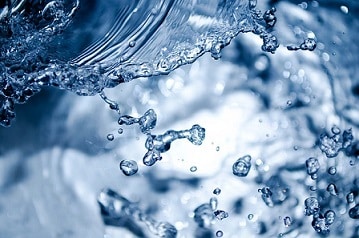 The world’s water supply is under threat as we all know by now, and we have to do something about it to ensure that we all have enough water to drink and for agricultural, personal hygiene, transport, industrial and agricultural purposes.
The world’s water supply is under threat as we all know by now, and we have to do something about it to ensure that we all have enough water to drink and for agricultural, personal hygiene, transport, industrial and agricultural purposes.
How can we use less water? Well, drinking water less often is not an option because without sufficient water our bodies become dehydrated and cannot function. We need to maintain the around 70% water in our bodies because every cell needs that water to do what it needs to do. This means that we need to find other ways to use less water.
How Can We Use Less Water?
Most of us already use less water with which to shower and conserve water in other ways such as recycling grey water, turning off the water while brushing our teeth, installing low-flow toilets and various other methods. These are all good and we should continue these practices, but the fact is that domestic water usage is only about 8% of global water use.
In order to make water conservation a reality, we need to take a stand and confront industry and agriculture about their water usage and wastage. An individual needs about 2-4 litres of drinking water per day, but it takes between 2,000 and 5,000 litres of water to produce that same individual’s daily food requirement according to the : Food and Agriculture Organisation of the United Nations (FAO).
The FAO and World Water Assessment Programme states that crop yields are increased by 100-400% when agricultural land is irrigated, with these irrigated crops making up about 40% of global food production. Unfortunately, poor irrigation practices and poor drainage have led to salinization and waterlogging of about 10 % of the world’s irrigated lands.
Many farmers are using methods like farm canals, terrace agriculture and drip irrigation, which have shown to produce more food for less water, but they struggle to earn a living against corporatized farming that employs increased mechanisation. Massive monoculture crops, which can easily be sprayed with chemicals and irrigation water and harvested by machines, have been the trend in recent years. Whether these genetically identical plants are good for one’s health are another conversation entirely, and this type of farming can be really water-intensive and pollute the rivers and streams near farms.
Changing what we eat can make a huge difference because different foods carry different water footprints. This can be seen in the difference in the production of a kilo of rice, which takes 1 000-3 000 litres of water to produce and a kilo of grain-fed beef, which takes 13 000 to 15 000 litres to produce. Eating less meat can make all the difference to water consumption.
Industry is a huge user of water at 22% of world water use, and introducing water-saving techniques can mean all the difference to global water usage. Gangi Brothers Packing Company managed this very well in the late 80s by monitoring their water usage and identifying areas where water could be saved. The company managed to reduce their water usage by a staggering 61% and saved themselves around $41 000 annually too.
Sometimes it is the little ideas that make all the difference; Mason Perez, a 9 year old, showed science fair judges and city officials that by reducing the water pressure in public bathrooms, more water would be saved and hands would be just as clean. This saved the taxpayers of Reno 20% on the city’s water bill, and all it cost the City was the time it took to reset the valves.
Small innovations or big ideas, we can all save water, so the next time you drink this elixir of life, maybe you should ask yourself, How can we use less water?
Sources:
Water cooler services in London and water dispenser rental from Living-Water. Buy bottled water coolers and mains water coolers.





